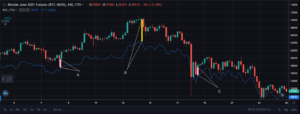Y Tho?
Why do I need to secure my assets? If you even need to ask this then you probably don’t know how vulnerable you are. First, let’s get educated on some of the past hacks that have taken place. MtGox was one of the largest exchanges back in the day and at one point was dealing with 70% of the world’s Bitcoin. Back in 2014 this exchange was hacked and lost around $600 million worth of Bitcoin. Bitfinex is another Exchange that got hacked in 2016 for $72 million. Nicehash got hacked for $80 million and the most recent was Coincheck, a massive $530 million stolen. So, we have these large companies that are getting hacked and they spend a ton of money on security. Do you still think your assets are secure?


How Do?
- If you can add 2-factor authentication then add 2-factor authentication.
- This is by far the easiest way of adding security and yet the most underused. I hear about people who have lost their life savings because they didn’t want the extra hassle of typing in a 6-8 digit code.
- Check sites are secure.
- Another simple yet overlooked method. A lot of crypto losses are due to being tricked into putting your details into non authentic sites.
- Do not store on exchanges unless you trade often(daily/hourly)
- As shown in the first paragraph exchanges are targets for hacks due to the amount of potential gains for a hacker.
- Do not use simple P/-\55VV()Rd5
- Passwords like “ilikechees2018” or “d1sc0ch1cken5” are not secure. Even with numbers for characters, any simple password cracker will be able to brute-force these in a matter of hours. You have a minimum of 52 alpha characters 10 digits and 40 symbols on your keyboard at least use one of each and a minimum of 16 characters.
- Create an email account for each exchange/site you register to.
- This won’t help you with your current registrations but should be done when possible. This means if your email is hacked you only lose the one for that email address and not all your sites.
- Use an antivirus and keep it up to date.
- A lot of user hacks are due to programs and files on the user’s computer. These programs can allow the hacker to access information from your computer via a keyloggers or file access or internet data probing.
- Cold Storage. This is where your crypto goes when hibernating.
- You should be storing all your long-term holds in an offline core wallet. There are plenty of guides online on how to do this.


Aint Nobody Got Time Fo Dat!
The following tips are either time consuming, non-free, or difficult to implement and are for making your crypto extra secure.
- Hardware wallets like Trezor or Ledger Nano S
- These hardware wallets area great way to store your crypto off your computer(the main thing in your house that connects you to hackers)
- Encrypt your data.
- This is a great way to secure your data be it crypto or any other data you have on your computer but due to the difficulty, it is not something I would recommend to those who have limited computer knowledge.
- Using a spare phone or offline computer for storing your data.
- Using a spare phone purely for 2-factor authentication or an offline computer for your wallets, passwords and logins remove the main access point for hackers. No internet connection = no access unless they come to your house, in that case, use a large bat.

Thanks for taking the time to look at this and if you could, give me a like and share as it costs you nothing and has value for me it would be greatly appreciated.


